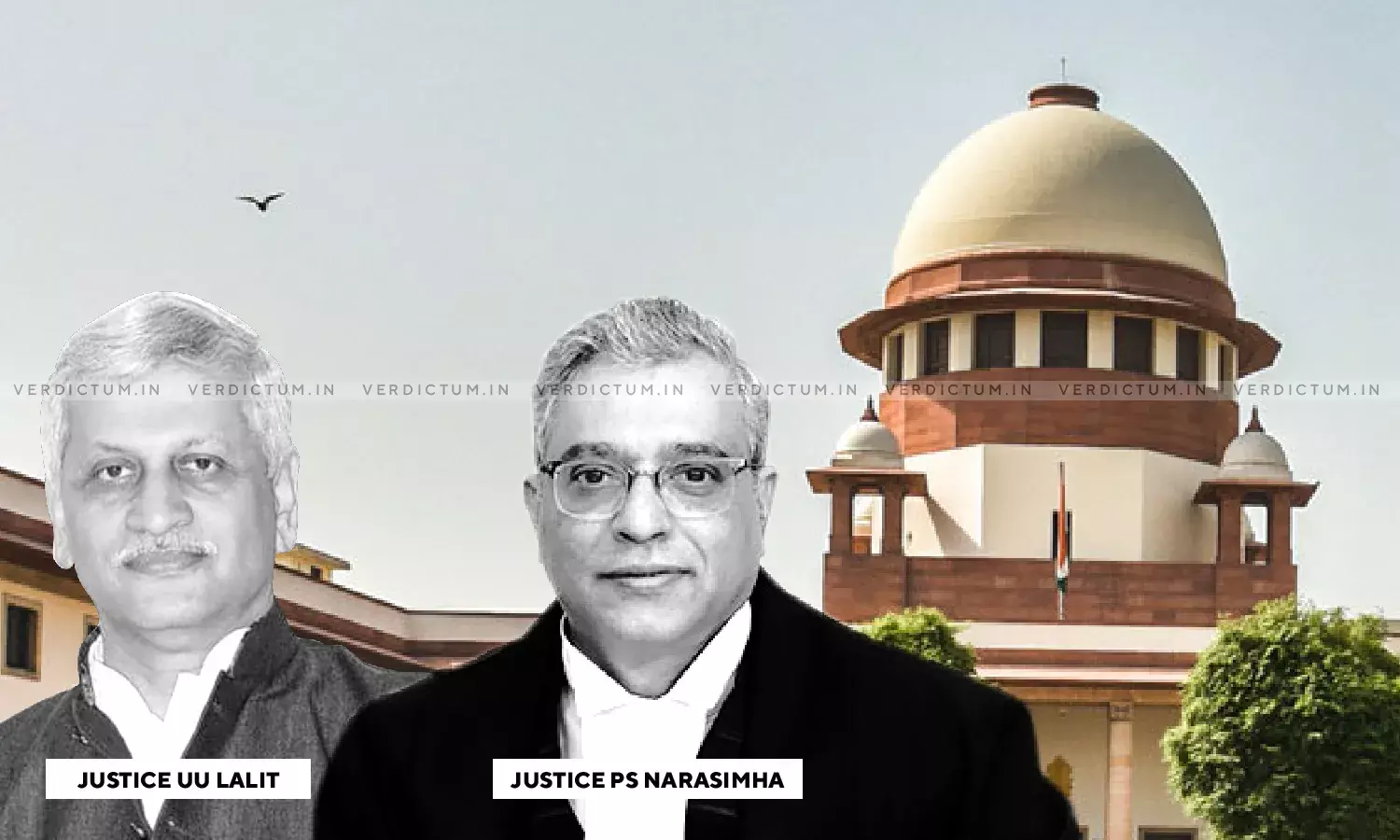Domestic Violence Act - Limitation Period U/s. 468 CrPC Not Applicable To Applications U/s. 12 Of Act

The Supreme Court in a domestic violence case has held that the limitation period under Section 468 Code of Criminal Procedure is not applicable to applications filed under Section 12 of the Protection of Women From Domestic Violence Act, 2005.
A two-judge Bench of Justice UU Lalit and Justice PS Narasimha has defined the scope of notice under Section 12 of the Protection of Women from Domestic Violence Act, 2005.
In this case, an application was preferred by the appellant under Section 12 of the Protection of Women from Domestic Violence Act, 2005 before the Judicial Magistrate. The application was filed seeking appropriate protection in terms of Sections 17 and 18 of the 2005 Act. The Application was filed against the Respondent-Husband as well as the father-in-law and sister-in-law of the Appellant.
Thereafter both the father-in-law and sister-in-law sought to quash proceedings against them under Section 482 CrPC before the High Court which was allowed. The same was preferred by the Respondent-Husband before the High Court, however, the Court was of the view that the application made by the Appellant under Section 12 of the 2005 Act ought to have been made within a year of the incident and since the Appellant had already left the matrimonial home in the year 2008, the application was an abuse of process by the Court.
Aggrieved, the Appellant approached the Supreme Court.
Senior Counsel Mr. Siddhartha Dave appeared for the Respondent, while Counsel Mr. Sharath Chandran appeared for the Appellant before the Apex Court.
The Apex Court after referring to a catena of judgments and provisions of the 2005 Act held, "It is, thus, clear that though Section 468 of the Code mandates that 'cognizance' ought to be taken within the specified period from the commission of offence, by invoking the principles of purposive construction, this Court ruled that a complainant should not be put to prejudice, if for reasons beyond the control of the prosecuting agency or the complainant, the cognizance was taken after the period of limitation."
"...if there be any offence committed in terms of the provisions of the Act, the limitation prescribed under Section 468 of the Code will apply from the date of commission of such offence. By the time an application is preferred under Section 12 of the Act, there is no offence committed in terms of the provisions of the Act and as such there would never be a starting point for limitation from the date of application under Section 12 of the Act. Such a starting point for limitation would arise only and only after there is a breach of an order passed under Section 12 of the Act," the Bench opined.
The Court additionally observed that the High Court wrongly equated filing of an application under Section 12 of the Act to the lodging of a complaint or initiation of prosecution.
The Bench also held that the High Court was in error in observing that the application under Section 12 of the Act ought to have been filed within a period of one year of the alleged acts of domestic violence.
Accordingly, the Court allowed the appeal and set aside the impugned judgment of the High Court.
Click here to read/download the Judgment

